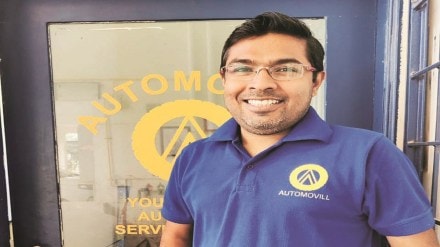Started as a listing platform for garages and later evolved into an end-to-end car servicing platform is Automovill. “From simple listing of garages, we moved to partnering with insurance brands and through them, found the most reliable workshops which got on boarded to our platform. Later we started setting up our own workshops and hubs,” says Mridu Mahendra Das, co-founder and CEO, Automovill.
Today, this Bengaluru-based autotech startup has around 22 hubs and workshops across India and 500 listed workshops, getting at least one car per month and around 200 listed workshops, getting at least one car every week. Emerging lines such as car aggregators, rentals and EV distributors have also contributed to this network of workshops and services. “We book around 1,000 vehicles every month in our own workshop and hubs with end-to-end billing. We distribute around 2,000-3,000 vehicles across the other workshops listed on our platform every month, mainly constituting small to medium services and repairs,” says Das.
Also read: FY2024 outlook for the automotive industry
According to him, the selective aggregation of workshops ensures high quality of service. “Our partners ensure the first check of quality for the workshops we aggregate through them. The data we collect from the time of booking till delivery further bolsters the quality of the service,” says Das. As per him, the data collected is used for multiple purposes such as creating an ecosystem which pulls the customers and for predictive pricing of the services.
Automovill has successfully set up data capturing systems to ensure the correct price is predicted and provided to the customers. “We are now in the process of improving service predictability. Once done, customers’ problems and service options will be listed on our platform in a predictive manner which will further democratise and empower customers,” says Das.
Also read: Cleaner vehicles and better monitoring: New RDE regulations on light-duty vehicles in India
Automovill has raised over
$2 million in funding from various venture and angel investors and operates in 11 major Indian cities. Around 30% of the revenue that the startup makes today comes from the commissions from the workshops listed on its platform and the remaining, about 70% comes from the direct workshops and hubs that it operates. With $2 million in GMV last year, the company faces challenges in terms of getting spare parts for car models that are really old or discontinued. “We handle this through the network we are building and in some cases by using refurbished parts,” says Das.
In addition, some of the old processes such as paperwork involved in insurance claims slows down the servicing time and creates poor customer experience which, as per Das, is addressed via deep integration with insurance brands’ IT systems, however there is a long way to go to be truly paperless and effective.
